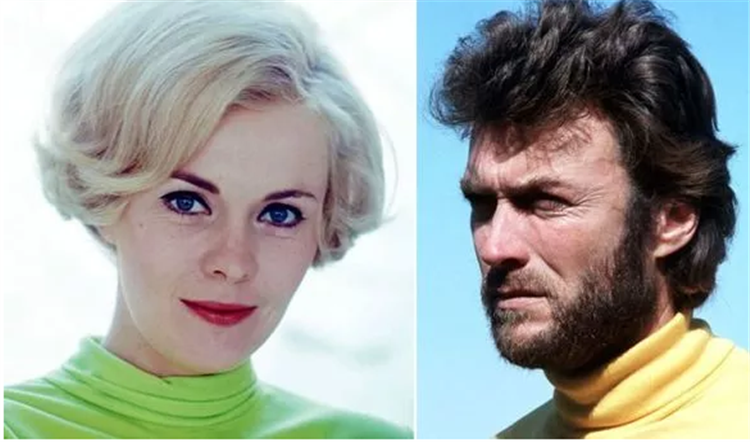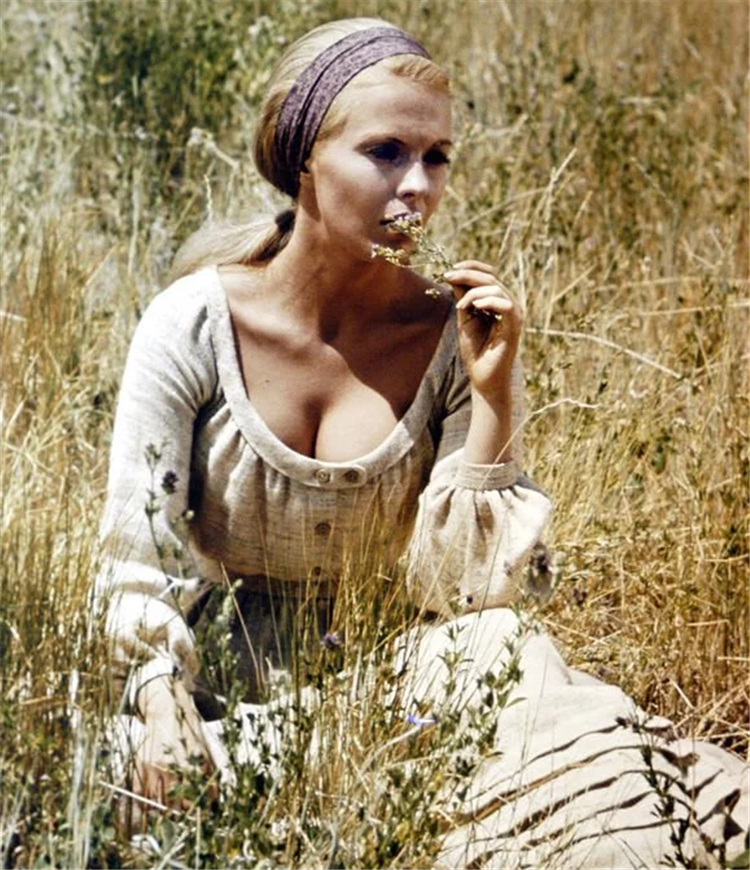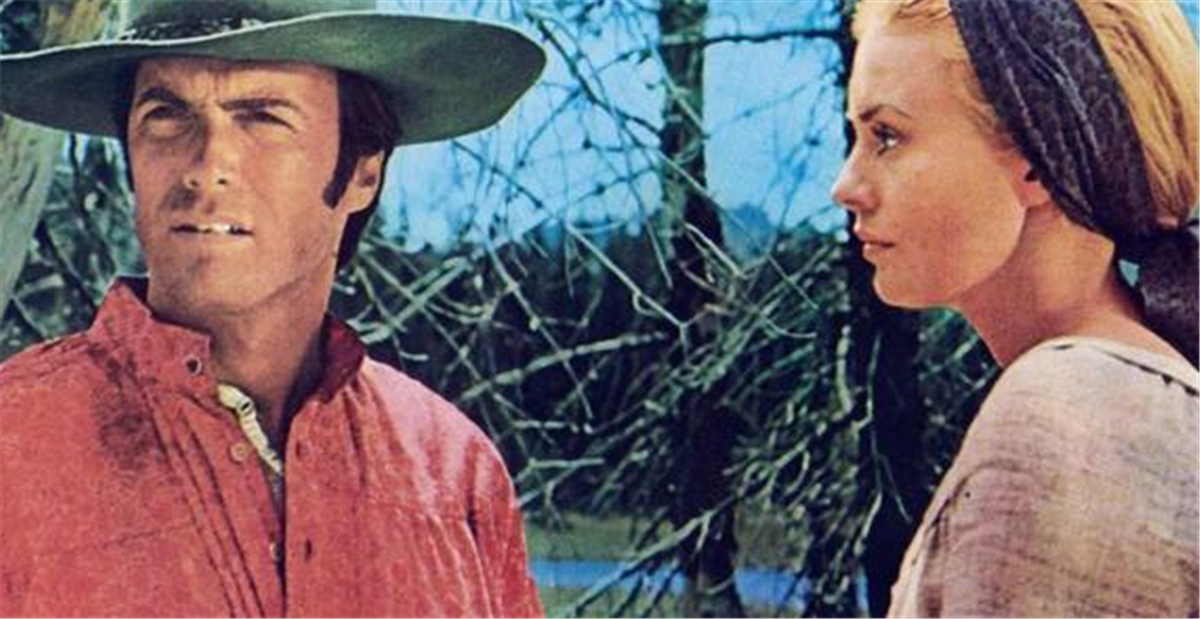The filming of Hollywood musical Paint Your Wagon was chaotic, almost farcical at times, going wildly over budget and then using homeless drifters and “hippies” as extras after they invaded sets
Jean Seberg and Clint Eastwood had a passionate affair during the filming of classic Western Paint Your Wagon and he later said “I adored her”. However, she didn’t know about his reputation in Hollywood and was left “traumatised” by what happened next. The actress suffered terrible personal heartbreaks throughout her career and would later take her own life. Decades later, looking back on their time together in 1968 filming Paint Your Wagon in Oregon, Eastwood said: “The movie we were playing in was nothing special, but we enjoyed life. I adored her. Filming, I looked at her as an actress, but I also saw the normal person in her. She was very happy, and I don’t think many got to see that. We spoke of family, friends, relationships… Love, and all that… She played an important role in my life.” In fact, a besotted Seberg thought their relationship would continue after filming finished and filed for divorce from her husband, Romain Gary.
The filming of Hollywood musical Paint Your Wagon was chaotic, almost farcical at times, going wildly over budget and then using homeless drifters and “hippies” as extras after they invaded sets. Neither Clint Eastwood nor co-star Lee Marvin could sing and director Joshua Logan symbolically burned the entire set down on the last day of filmimg.
Yet, for Seberg, it was a happy time alongside the man she dreamed she would spend the rest of her life with. To the outside world, the actress was the epitome of cool and confident chic. Since 1959, the American had built a dual career in Hollywood and France, starring in movies with the likes of Jean-Paul Belmondo and popularising the pixie cut in 1960’s Breathless. But, in her private life, she was highly emotional and vulnerable, and already on her second marriage by the time she met Eastwood.
Her leading man had been married to first wife Maggie Johnston since 1953 but was already notorious for his affairs and mistresses – and, later it would transpire, illegitimate children


A year after meeting Maggie, Eastwood had an affair which resulted in daughter Laurie, who was adopted out and her mother has never been revealed. A major 14-year affair with stuntwoman Roxanne Tunis produced another daughter, Kimber, in 1964.
In fact, Eastwood wouldn’t have children with his own wife until son Kyle in 1968, followed by his sister Alison in 1972. Later, from 1975 to 1989 Eastwood had a relationship with actress Sandra Locke, as well as fathering two children with flight attendant Jacelyn Reeves in 1986 and 1988.
There was clearly a pattern and when Seberg met Eastwood, he already had three children, was married and was carrying on a long-term affair. He was also having yet another ongoing affair with a third woman. The star had arranged for her to be given work as one of the extras, so she could join the film shoot in Oregon. She revealed all in 2008.



Remaining anonymous, the woman told Seberg biographer Garry McGee: “We had an affair for two years. Since I was involved with Clint at the time, he pulled a few strings and got me work on the film.”
Asked whether Seberg knew about Eastwood’s other women during her own affair with him, the extra said, “No. She had no idea.”
Seberg would be completely devastated when she realised her love would be quickly tossed aside.
Jerry Pam, a publicist for both actors at the time, revealed in 1981: “Once they got back to Paramount, it was as if Clint didn’t know who she was. Jean couldn’t believe that he could be that indifferent to her, after everything that had gone on in Baker. She was a very vulnerable woman, and it was a terrible trauma for her.”
Years later, Eastwood would rather disingenuously say: “She was so charming. I visited her sometime after that in Paris. We kept in touch briefly, but we had become kind of strangers.”
The next few years were extraordinarily difficult for the actress. Abandoned by Eastwood and divorced from her husband, she also found herself the target of FBI intimidation and surveillance because of her vocal and financial support for various civil rights groups. This would continue for the rest of her life, with reports that the intelligence agency, under J Edgar Hoover, worked on the “neutralisation” of Seberg and to “cause her embarrassment and serve to cheapen her image with the public.”
The actress later said that the distressing personal harassment and public smears resulted in the loss of her child. The tragedy would haunt her for the rest of her life and provoke suicide attempts on the anniversary of the baby’s death, Gary later said.


In 1970, the FBI planted a false story that Seberg was carrying the child of Black Panther Raymond Hewitt, and not Gary, to whom she was still married and shared one son, Andre Diego. It was picked up by the LA Times and on August 23, the actress went into premature labour. Two days later, her daughter, Nina Hart Gary, died.
Wire-tapping, break-ins at home and general surveillance of the actress continued for years. It is also suggested that she was blacklisted by Hollywood through the 1970s. She also had a succession of tumultous relationships, topped off by a relationship with Algerian Ahmed Hasni in 1979. He persuaded her to sell her second flat in Paris and hand him the money, reported to be 11 million francs, ostensibly to start a restaurant. Soon after, Seberg went into hiding from Hasni, citing abuse.

Seberg was reported missing on August 30 and then, horrifically, headlines around the world reported that the actress had been found dead in her car on September 8. There was a suicide note to her son Diego, alongside a bottle of barbiturates, saying, “Forgive me. I can no longer live with my nerves.”
A police investigation revealed the body had been there for days. There was an extremely high level of alcohol in her body, but the lack of any bottles in the car indicated she could not have got into the vehicle without help. Somebody else had been there. To this day, theories surround her death, including accusations that the FBI had been involved.
French director Alain Mamou-Man later said: “I could not believe the death to be self-inflicted.”
